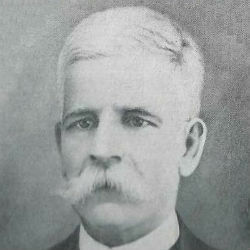O Colonelism it is a phenomenon of Brazilian politics that took place during the First Republic.
It is characterized by a person, the colonel, who held economic power and exercised local power through violence and exchanges of favors.
Origin
The word Coronelismo is, in fact, a Brazilianization of the rank of colonel of the National Guard.
The position was used to name the positions that local elites could occupy within the Brazilian military and social rank.
This phenomenon began during the Regency Period (1831-1842).
As the Empire of Brazil found itself without a strong and centralized army, the government appeals to the local leaders in order to form regional militias and thus fight the rebellions that took place. in the country.

Colonel Fabriciano received his charter as a lieutenant colonel for the district of Piracicaba, in 1888
At that time, military posts such as lieutenant, captain, major, lieutenant colonel and colonel of the National guard.
So, to join this elite, it was necessary to have ample resources. The colonel was supposed to bear the costs of uniforms and weapons amounting to 200,000 réis in annual income in the cities and 100,000 réis in the countryside.
In the eyes of the local population, being a colonel was equivalent to having a noble title and came to legitimize many of the actions of local chiefs.
This process starts at the municipal level and establishes the colonel's domination over the public power. Add to this the patriarchal traditions and archaism of the agricultural structure in the remote interior of Brazil.
The phenomenon of colonel power was so present that it is confused with other related terms, such as bossiness, clientelism and even feudalism. In Hispanic America we find similarity with caudilloism.
Features
This political elite was made up of merchants, large landowners and local political bosses. They were able to exert influence over the local population as undisputed authorities.
Colonels could recruit people to make up the government's military force. In this way they could maintain the pillars of political exclusion and control over spaces of political representation.
At the local level, colonels employed militias to repress and thus maintain social order, while preserving their own interests.
For their part, these men distributed benefits, sponsored the feast of the local saint, were godparents to countless children who were born on their land, and gave animals to the most outstanding cowboys. Thus, they established a relationship of dependence and fear with employees, called clientelism.

Colonel Chico Heraclio commanded the city of Limoeiro (PE) and stated that the elections in his city "had to be made by me"
The territories politically controlled by the colonels were called “electoral corrals”. In them, anyone who refused to vote for the candidate sponsored by the colonel could suffer physical violence and even die. This method became known as the halter vote.
Governors' Policy and Coronelismo
The First Republic was characterized by the Policy of Governors.
At the time, there were no national parties, only regional ones. Thus, the governors of each province should make alliances with their local allies to ensure a good performance at the polls.
That's why it was so important to please the colonels who had control of the cities and wouldn't let the opposition win.
These alliances were also reflected at the national level when governors came together to elect a particular candidate.
Learn more about Governors Policy
Coronelismo Decay
Despite all hegemony during the Old Republic, coronelismo lost ground with the modernization of urban centers, as well as the rise of new social groups.
Likewise, the Revolution of 30, led by Getúlio Vargas, as an end to this way of doing politics.
However, to this day we can verify its influence in Brazil by noticing the domain of the same family in certain Brazilian regions.
Curiosities
- The Brazilian dramaturgy portrayed several colonels. One of the most famous was Odorico Paraguaçu, mayor of the fictional Sucupira, character in the play “Odorico, the beloved”, written in 1969, by Dias Gomes.
- Comedian Chico Anysio created a character, Colonel Limoeiro, inspired by Colonel Chico Heráclio.
- In literature, Bahian author Jorge Amado has widely described the power of colonels in several works as “Tereza Batista, tired of war", among others.
Read more:
- Governing Period
- Additional Act of 1834
- old republic
- patronage
- Oligarchy



